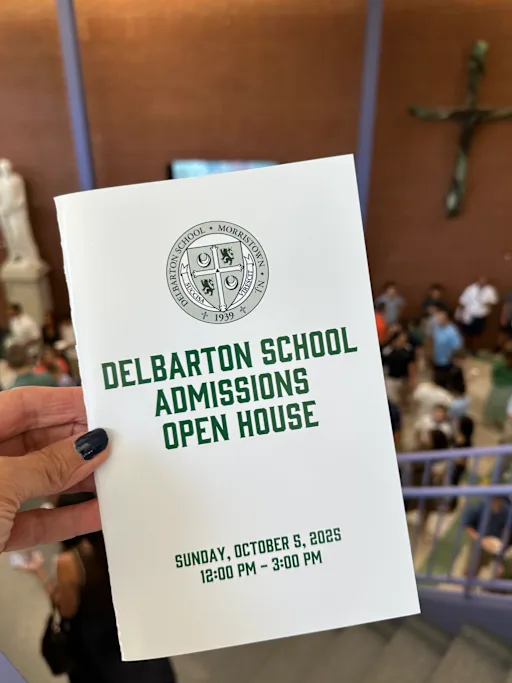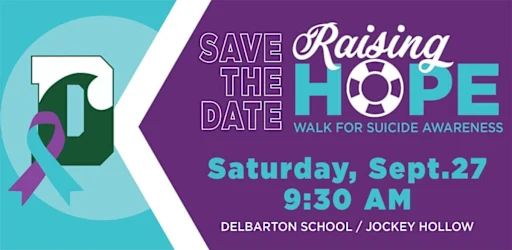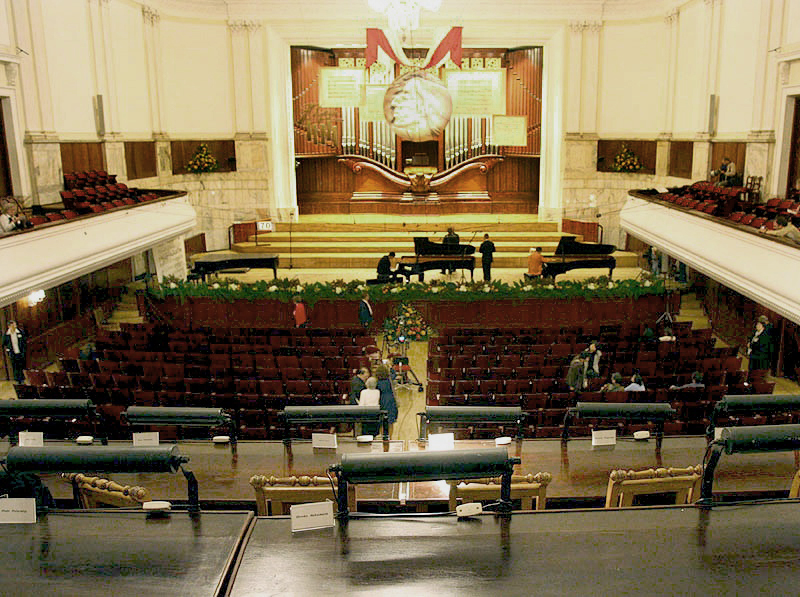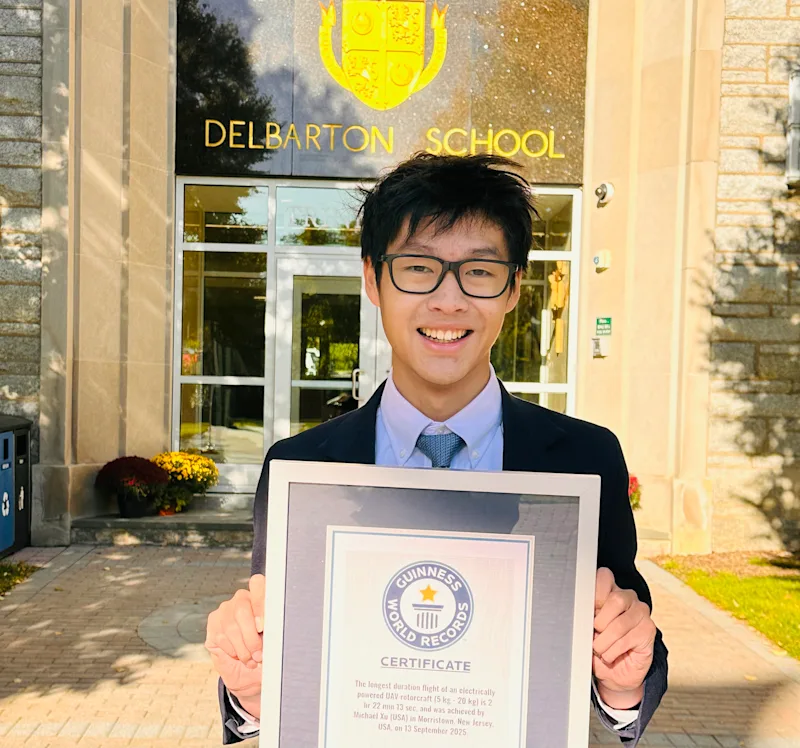Delbarton Senior Reflection
High school, a four-year journey that, at the outset, feels like it surely must be linear, is most definitely the opposite. Each year carries the collective feelings and emotions of the Class of 2025 as we grow from boys to men—starting freshman year with a blank slate. In this way, each student’s growth, or lack thereof, stems from experience, decision, and influence.
As I attempted to develop this thought further, I realized that to label these three things as the formative factors in our lives would impose a sweeping generalization that fails to encapsulate why we became the people we are today. See, everyone on Earth has experiences, decisions, and influence. Our growth, then, doesn’t come from merely possessing these things, but from which experiences we choose to have, what the outcome of our decisions is, and how much we allow ourselves to be influenced.
The Benchmark Illusion
Freshman year—the time when proving you were worthy of attending Delbarton sat at the forefront of everyone’s mind. On our first day, I still remember Coach DesPlaines and Dr. D’Urso assuring us that even if we didn’t feel like we belonged, we did. Instead of taking that to heart, every task became a vessel to prove our competence, putting in effort that often came from a quiet place of insecurity.
In class, students constantly reassured each other that not getting straight A’s was okay—because, “It’s only freshman year.” Another common excuse was that if you had gone to public school for middle school, struggling here was normal and accepted. I nearly convinced myself that I was doing well “for me,” because “Delbarton is harder than public school, so I’m going to get some B’s.”
We even attempted to prove ourselves in gym class, where handball—something most of us had never even played—suddenly became our version of the Olympics. Students displayed more passion in those gym classes than they did for their school sports. The locker room often echoed with eighth-grade folklore: everyone had a story about how “special” they were. I had one too:
“You know our classmate Philip Folmar? I faced him in baseball last year. I hit a single and stole second, third, and home on the first four pitches of the game.”
Comments like mine sparked assumptions and speculation about spring sports early on. Freshmen buzzed around like paranoid fruit flies: “What position do you play?” “How many outfielders have you found?” Everyone was trying to claim space—social, academic, athletic—before the scene was even clear.
Retrospectively, what did it all mean? Did my story against Phil Folmar grant me more popularity or success? Did Aidan Barber’s 12 handball goals in a single gym class make him a better person? Did colleges factor in middle school background when reviewing our freshman grades? Of course not. But The Benchmark Illusion had already taken hold—a psychological pattern where performance weakens due to complacency caused by social comparison. It led us to set external goals, deny our shortcomings, and carry ourselves with a level of confidence that, at times, crossed into hubris.
The Compensation Drive
Sophomore year—the time when every student realized just how wrong they were the year before. With a sea of far from perfect GPAs in our wake, we began to feel college and standardized testing knocking at the door. We began attempting to make up for lost time—compensating for the complacency of freshman year and trying to solidify our place at Delbarton.
This year, I tried to flip the switch. I assured myself I had adjusted to Delbarton and that I could salvage my unsatisfying GPA with hard work. However, my work ethic turned into a perfectionist mindset that ironically hurt me. I eventually learned being intentional and confident leads to better results than studying with fear.
Athletically, if I had to choose one year when boys turned into young men, it would be sophomore year, as it’s when we began to understand what was expected at Delbarton. Some of us were playing varsity alongside seniors, others were grinding at the JV level, trying to break through. I was in the latter group. I realized that if I wanted to play college baseball, I needed to get stronger and refine my mechanics. I started the year at 145 pounds and ended it at 173. I thought I was pulling ahead—until I looked around and realized almost everyone else had done the same.
That’s when it hit me: I wasn’t unique in my urgency. We were all experiencing a compensation drive—a short-term burst of effort to make up for a past deficiency. We all tried to fill the void in different ways: some by chasing perfect grades, others through weight room routines, and most by cramming homework over late dinners.
I began to learn the Delbarton rhythm: coast until two weeks before Thanksgiving, suffer, coast until two weeks before Christmas, suffer again. Those December weeks were especially brutal. I remember late nights, missed practices, and a mind worn thin. Studying during car rides and putting aside the few hobbies that brought me joy, I slowly began to understand what it meant to be a Delbarton man. Freshman year, we grew together. Now, we endured—facing trials and tribulations not in isolation, but side by side.
I’m grateful for those moments—even the ones that led me to ask, “Is this really what it takes?” Delbarton showed me the significance of delayed gratification. There’s no greater appreciation for free time than after studying past 1 a.m. for a week straight. No greater satisfaction than surpassing your own expectations. And no greater appreciation for life than letting it knock you down—only to rise again, stronger, steadier, and more alive.
It was through that struggle that I began to understand the meaning behind Delbarton’s motto, and a truth I now live by: Succisa Virescit.
The Projection Principle
Junior year—the moment we all looked around and truly believed we were just as worthy of greatness as anyone else on the boat. For some, that meant committing to top athletic programs. While happy for our brothers, their success meant that the tide shifted, raising the waterline for everyone else.
For those of us not on the fast track, panic set in. College loomed. The sea turned rough. APs, GPA pressure, sports, essays, applications—storm after storm.
Everyone wanted to look college-ready, to seem the most capable. Confidence blurred into projection. Everyone began convincing themselves they were qualified—that their stats were “strong enough.” For the first time, Delbarton’s sacred brotherhood felt fractured. Silent competition crept in. Conversations shifted from shared struggle to subtle résumé checks—“What’s your essay about?” “How many APs are you taking?” The pressure was no longer quiet.
We’d been warned by upperclassmen: junior year would be the hardest. They were right. I found myself pulled further from the things I loved—replaced by five-hour study calls, sleep-deprived nights, and an unwavering drive to succeed. That year, I called on every motivator I knew. My favorite? A whiteboard above my desk where I tracked sleep, screen time, and scribbled quotes to keep me moving. The best one I found came from a 2024 Daytona ARCA 200 race, where Andy Jankowiak, running third on the final lap, floored it and said, “I’m not lifting until I see God or the checkered flag.” I recalled God’s messages in the Bible. I remembered lessons from David Goggins’ Can’t Hurt Me. I imagined my dad, a first-generation American, working tirelessly to build a life from almost nothing. I asked myself: if they had so little and still made it, what excuse do I have?
Knowing that, how could I give anything less than blood, sweat, and tears? I realized something simple: no one cares where you come from. They care what you become.
From then on, I lived by that mindset. In hardship, I heard those voices—and I pressed on. I knew every test, every GPA shift, every hour of effort could shape how colleges viewed me. So I left nothing to chance.
The Collapse and Clarification
Senior year started like any other, but I felt battle-tested and held a sense of renewed confidence. Despite this, the two weeks before Christmas were just as treacherous as I remembered. This time, included in that struggle was my Boston College decision. On what felt like a random Tuesday, I greeted my guidance counselor lightly, asking, “Any word on when Boston College is releasing their Early Decision 1 news?” In the most unexpected turn of events, he responded joyfully: “Tonight!” My calm smile faded and was replaced by fear, anxiety, and uncertainty. Although I was initially disappointed to be deferred on that unassumingly significant Tuesday, I concluded that God wanted me to be patient so I may view my deferral as an opportunity for growth and self-reflection. After concluding that Villanova would be my ideal Early Decision 2 choice, I attempted to relax during my final Christmas break at Delbarton before I returned to school, still homeless in the realm of college.
After winter break, Delbarton changed. The familiar expectation of rigorous class sessions lessened with each day. The familiar feeling in your stomach when a senior would “SCUT” (senior cut) you in the lunch line disappeared. Most importantly, the familiar sense of fear you’d get around the Senior Garden was gone; we were finally allowed to walk inside. Delbarton began fading away from me just as fast as it came. As more students committed to colleges, overall effort levels dropped, and the devil of complacency began looming over my shoulder. But I attempted to make one final push until my future was decided. I told myself: “Not yet. Remember what Kobe Bryant said. ‘What’s there to smile about? Job finished? I don’t think so.’”
Shortly after, on a Valentine’s Day I will never forget, I gained a lifelong companion: the community of Villanova University. After reading Psalm 27 two times and praying that God would deliver my decision in accordance with His will, I finally found the strength to press the “View Application Update” button. Psalm 27 will remain highlighted and annotated in my Bible for perpetuity, and its message will continue to affect me for just as long. Whether it stemmed from the touching verses I had just read, or the accumulation of effort over the years, the tears of joy that followed reading my acceptance letter were a direct cry to God. I had tried my best for four years, learning lessons through failures and pushing harder as a result of them, to get into a Catholic Business School that is a great fit for me. After that, I found peace with the mindset that my future was in God’s hands. Given the Augustinian nature of the school and some divine intervention that led the current Pope to be an alumnus of my future Alma Mater, I would not trade the outcome I received for the world.
As Delbarton bade us its farewell, our days were now comprised of wiffle ball games in the Senior Garden, wishing the best to teachers who shaped us in our most formative years, and reflecting on the four-year journey we called high school.
As I reflect and consider whether this present time represents the beginning of the end or the end of the beginning, I realize it doesn’t matter as much as I thought. At the end of the day, I may not know what my future holds, but I know who holds my future.
Thank you Delbarton.
































